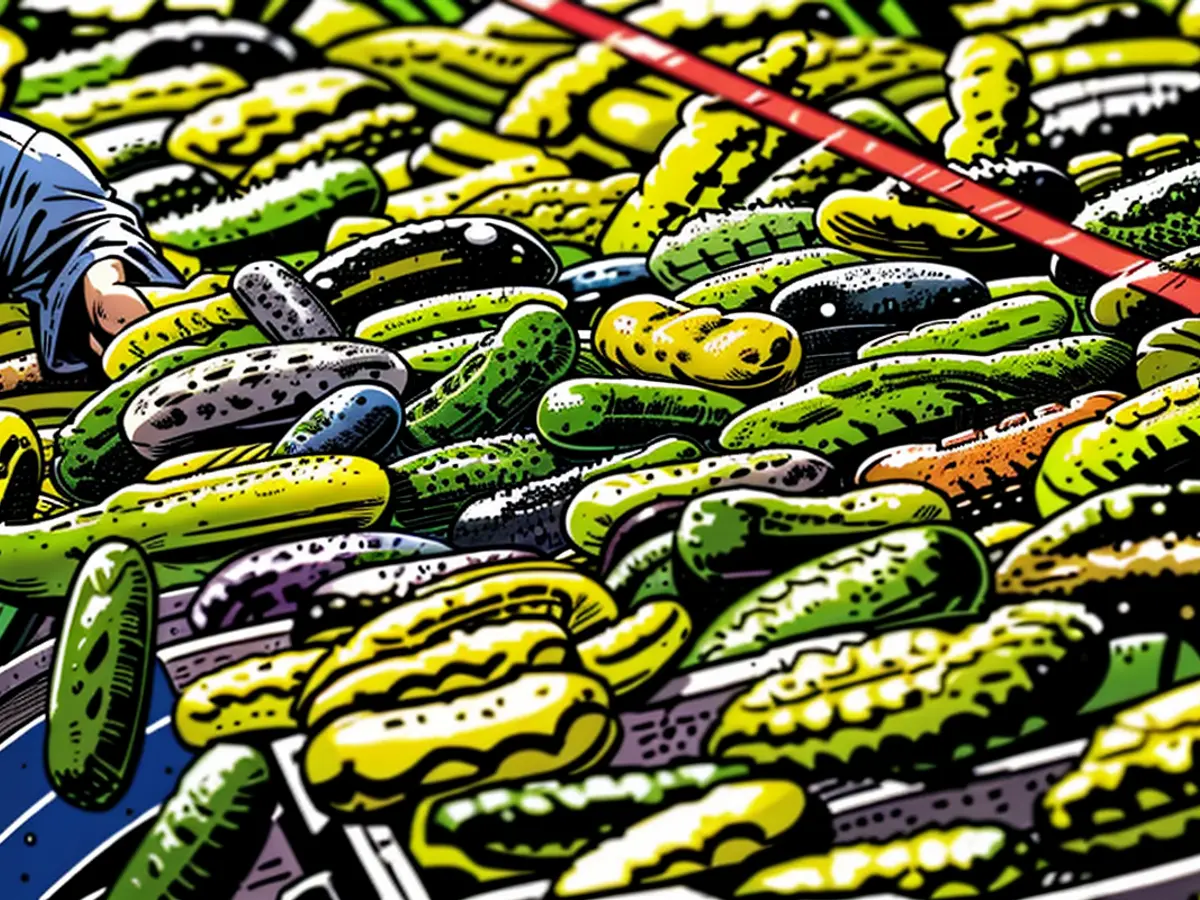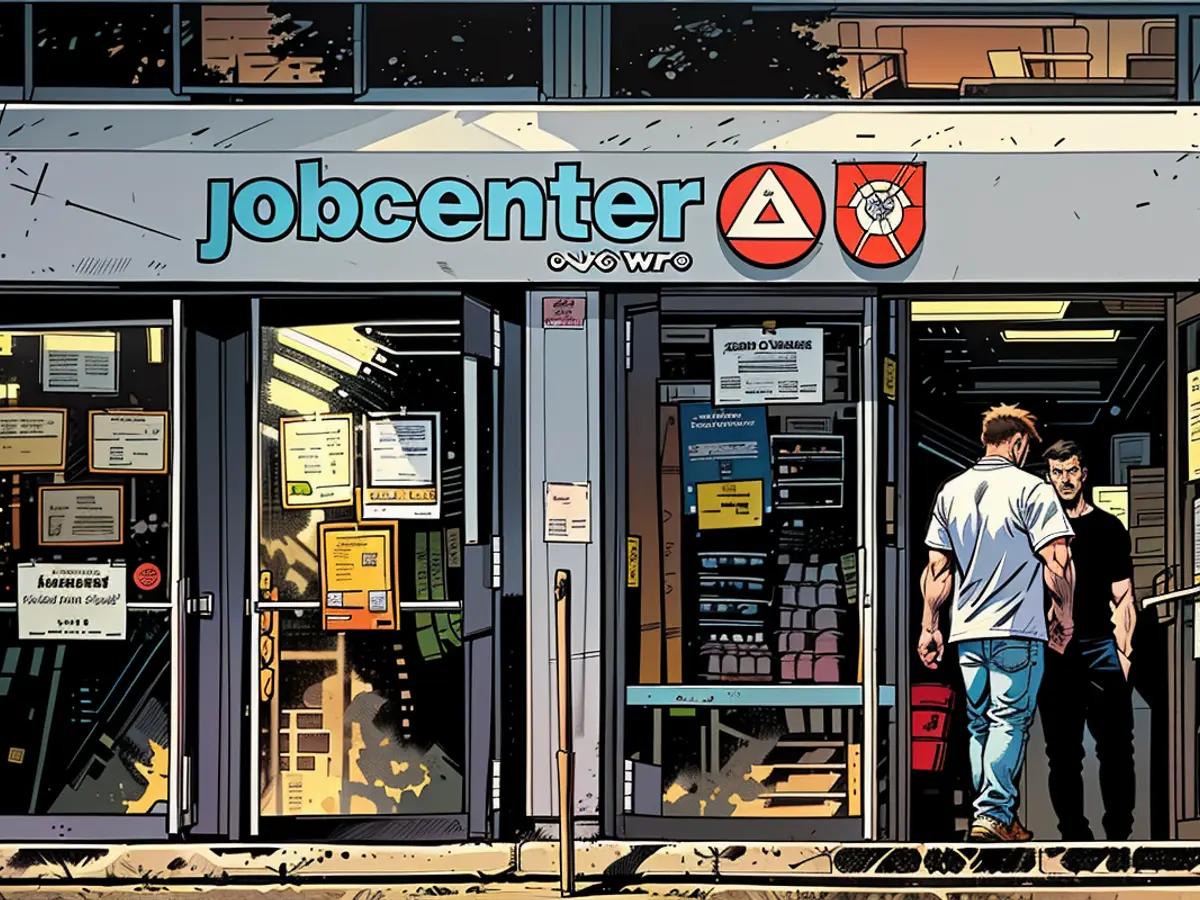- La Federal Ministry of Agriculture e Alimenti in Germania ha riportato una diminuzione del 7% nell'area coltivata alle cipolle in vetro in cui si coltivano in campi nel 2019 rispetto al 2018.
- Nelle regioni agricole prominenti di Brandeburgo e Baden-Württemberg in Germania, l'area coltivata alle cipolle in vetro era significativamente inferiore nel 2023 rispetto al 2018.
- Katja Behringer, portavoce della società svabiana Hengstenberg, ha attribuito la diminuzione della coltivazione di cipolle a costi energetici in ascesa e salario minimo.
- La crescita continua di cipolle in temperature calde di notte può portare a ettari con irrigazione intensiva per mantenere le condizioni adatte.
- Secondo Melanie Kossatz, amministratrice delegata dell'Associazione Spreewald, entrambe l'agricoltura e le imprese di trasformazione nella regione di Spreewald, nota per i suoi prodotti di cipolle pickle, affrontano pressioni di costi a causa dell'aumento del salario minimo.
- Secondo Agrarmarktinformationsgesellschaft, i prezzi medi per le lattine di cipolle pickle in negozi di alimentari e bevande hanno salito di oltre il 60% negli ultimi dieci anni.
Cetrioli acidi - Meno aziende agricole coltivano cetrioli da sottaceto
German farmers are planting fewer cucumbers in fields. The Federal Ministry of Food and Agriculture reported a 7% decrease in the cultivated cucumber area in 2019 compared to 2018. In Brandenburg and Baden-Württemberg, two prominent agricultural regions in Germany, the cultivated cucumber area was significantly lower in 2023 than it was in 2018.
Katja Behringer, spokesperson for the Swabian company Hengstenberg, attributed the decreased cucumber cultivation to rising energy costs and minimum wage. The continued growth of cucumbers in warm night temperatures can lead to hectares with intensive irrigation to maintain suitable conditions.
Both agriculture and processing companies in the Spreewald region, known for its pickled cucumber products, face cost pressures due to increased minimum wage. According to Agrarmarktinformationsgesellschaft, the price of pickled cucumber cans in food and drink stores has risen by over 60% in the last ten years.
[Image: Cucumber on the cucumber flyer]
The Hengstenberg spokesperson explained that there is a lot of manual labor involved in producing a glass of cucumbers from German cultivation. Harvest helpers and harvest workers pick the cucumbers by hand while lying down on the wings of the vehicles, the so-called cucumber flyers.
Extreme weather conditions, drought, and heat challenge the cucumber, said the spokesperson. "She likes it continuously moist and warm, but not too hot." At temperatures above 30 degrees, the cucumber plant stops growing. "Cucumbers grow at night, and only at temperatures above 15 degrees," explained the spokesperson. In warm nights, cucumbers can therefore grow up to three centimeters longer. Often, the cultivated areas must be intensively irrigated to create the right conditions.
Costs are rising in the double-digit range. "These points make farming expensive and unattractive," summarized Behringer. The competition for seasonal labor force also complicates the situation.
In the Spreewald region, known for its pickled cucumber products, there are cost pressures in agriculture as well as in processing companies, said Melanie Kossatz, managing director of the Spreewald Association. One reason for this is also the increase in the statutory minimum wage. The cultivated area in the Spreewald region has been stagnant for several years and is currently around 500 hectares.
Consumer prices for pickled cucumber cans have risen in recent years. In 2013, pickled cucumber cans cost an average of 1.30 euros per 720 milliliter can, according to the information. In 2019, this was reportedly 1.56 euros, and by 2023, the average price had risen to 2.11 euros. According to the Federal Ministry of Agriculture, the prices for pickled cucumber cans have risen more than the average food prices in the past four years.








